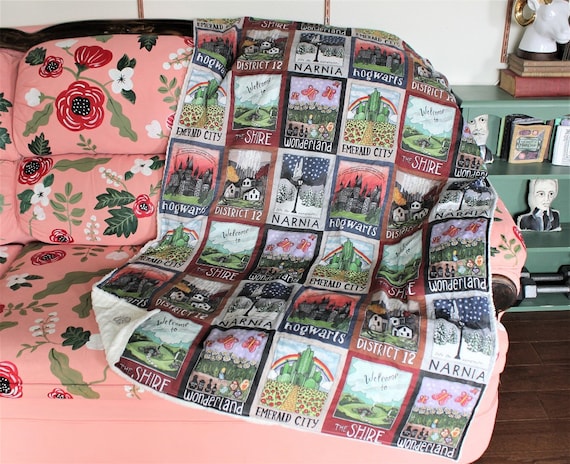"'Yeah, it's no big deal,' he said casually. 'The main thing I have is this thing called man-bi-du-lo-facial dys-os-tosis – which took me forever to learn how to pronounce, by the way. But I also have this other syndrome thing that I can't even pronounce. And these things kind of just morphed together into one big superthing, which is so rare they don't even have a name for it. I mean, I don't want to brag or anything, but I'm actually considered something of a medical wonder, you know.'
He smiled.
'That was a joke,' he said. 'You can laugh.'"
 Sometimes you pick up a book and you read it and it's really late at night and probably you should be going asleep but you cannot stop reading and then it's 3am and you've finished the whole book in a 4 hour time period and you feel suddenly bereft.
Sometimes you pick up a book and you read it and it's really late at night and probably you should be going asleep but you cannot stop reading and then it's 3am and you've finished the whole book in a 4 hour time period and you feel suddenly bereft. That's what happened to me when I read Wonder last Friday night.
I loved it.
It's a simple premise that follows a well-proven formula: disadvantaged main character overcomes great odds to triumph in the end. It could have been a little saccharine, cloyingly filled with over the top cliches, making the main character into a saint in order to illustrate the horror of the world around him, and, given that it's aimed at children I kind of worried that's what would happen. It doesn't. What this book does is tell a compelling story very effectively, it's honest and it's real and it's both moving and humorous. It's kind of a little like Curious Incident...; it's wonderful.
August Pullman is ten. He was born with a severe facial disfigurement ('I won't describe to you what I look like. Whatever you're thinking, it's probably worse.') and after being home-schooled his whole life he's about to start school. He's used to the negative reactions to his appearance: the shock, the stares, the fear but being used to it doesn't make it hurt any less, especially not when you're ten years old and all you want to do is watch Star Wars and hang out with your friends. Auggie wore a pretend astronaut's helmet for two whole years when he was smaller just so people couldn't see him; he doesn't want to be invisible though, he just wants to be ordinary.
The story is deftly and cleverly told through short chapters and the switching points of view of August, his older sister Via and a couple of his peers, a good narrative choice by Palacio I think; it really works. The short chapters keep the story focussed, stop it from getting carried away in the minutiae and keep the reader feeling like they're right there, living the life of a ten year old. It's fast paced because Auggie's life is fast paced. The switching of the narrative stops the story from holding Auggie front and centre and makes him what he wants to be: one of the crowd. It also effectively shows not only how he feels about how he is perceived but how he actually is perceived, and, perhaps more importantly the impact that being connected to Auggie Pullman can have on his peers.
His relationship with his sister, and, her story generally is particularly well handled. The thing I liked I think, is that nothing is sugar coated and, everybody - Auggie included - is flawed. There's a wonderful scene where he has a temper tantrum and storms off to bed, wondering and wondering why nobody has chased after him to comfort him like his Mum always always would. Via yells after him, 'not everything is about you Auggie' and it just demonstrates so well the dynamic between these two characters and their parents, perfectly illustrates the effect that being older sister to a boy who has had 27 surgeries in his short life, who is special can have because some days, to Via, it seems like everything is about August, and that's hard. The advantages that August has, particularly in the form of the treatment he receives from his parents, are readily apparent; it's hard not to feel for Via as much as you feel for Auggie, and it's equally hard not to be moved by the ferocity of her love for him.
It's a harrowing read at times, I'm not going to lie: August Pullman does not have it easy and there's one scene where he cries, 'why am I so ugly, Mommy?' and it just made my chest tighten.
What? I'm not crying, there's a tree in my eye.
Jen found the ending to be patronising. I can see why, although I can think of more patronising books [yes, the boy in the striped pyjamas, I am looking at you. Jen do you remember how angry we were at that book?!] and yes, I guess, the ending is the weakest part of the book, and it did feel a little much maybe, like Palacio was tying up the loose ends and trying to make sure the reader really really got the message [which I had, from the start actually] but it didn't take away from the rest of the book for me and let's be real here: a below par ending can ruin a book for me quite easily. I guess though, this book is aimed at children and I think perhaps it's pitched just right for them; it could have ended differently and it could maybe have ended better but above all what we have here is a book that matters.
A book that I would give a healthy 9/10 because yes, it's harrowing and it's emotional but it's also kind and it's inspiring and it's really quite extraordinary; it makes you want to wrap every single character in your arms and hug the life out of them; it makes you want to be kinder, and better; it makes you feel and it makes me want to say to people, young and old, 'you should read this book.'





